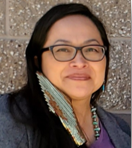Supporting brain health as we age remains an important priority in elder care. Alzheimer’s disease and related dementias (ADRD) have become major public health concerns worldwide. American Indian and Alaska Native communities face these challenges at even higher rates than other populations.
Community Engagement and the GeriScholars Program
Early action and culturally responsive care are key to better outcomes. Programs like the Indian Health GeriScholars Program promote awareness and action, encouraging health care providers to adopt effective, community-centered approaches to support elders living with or at risk for dementia. The GeriScholars Program was created in response to feedback from tribal leaders calling for stronger geriatric services. Grounded in the needs of the communities it serves, this program is making a real difference.
Impact and Recognition
The program’s success is reflected in its recognition—GeriScholars earned the Indian Health Service Director’s Award in 2022 and 2023. Today, the program spans 12 IHS Areas across the country, building a network of providers skilled in combining medical knowledge with cultural awareness.
Early Detection and Cultural Integration
According to IHS health care data, 12,877 American Indian and Alaska Native adults ages 45 and older have been diagnosed with ADRD. Alarmingly, 14% of these cases occur in adults aged 45 to 64, compared to the global average of 9%. This makes early diagnosis and intervention especially important. Dr. Maria Bellantoni, a geriatric care leader at IHS, used insights from GeriScholars to launch a geriatrics service at the Phoenix Indian Medical Center. She emphasized that knowing how many patients have dementia helps clinics plan and improve care. Other GeriScholars alumni, like Dr. Raphael Francisco of the Absentee Shawnee Tribe of Oklahoma, have introduced routine brain health screening using tools such as the Mini-Cog. This simple test takes just minutes and can be used in many health care settings.
Sustainability through Education and Collaboration
The GeriScholars Program also emphasizes sustainability through ongoing education and collaboration. Developed with support from the Veterans Affairs Office of Rural Health, the program offers week-long training, hands-on improvement projects, and continuous peer support. In its first two years, 28 providers and pharmacists across 23 sites focused on dementia detection, medication safety, and fall prevention—three areas closely tied to brain health. This growing network supports ongoing learning and quality care. Dr. Gerrick Jones, a pharmacist at the IHS Catawba Service Unit, noted: “The benefits the GeriScholars Program provided will continue long after its conclusion.”
Expanding Training and Resources
New efforts are helping to expand this work. The Geriatric Nurse Fellowship and Dementia Clinical and Caregiver ECHOs provide more training opportunities, especially in dementia care. These programs help primary care teams recognize early symptoms and empower patients and their families to advocate for their needs. Clinicians can also access expert guidance through the IHS Dementia Clinical Support Line, available Monday-Friday from 12:00-8:00 p.m. ET, at (833) 998-4897 or uw-triad@uw.edu.
Future Opportunities and Recruitment
In 2024, 15 GeriScholars completed their training and implemented local quality improvement projects. Sustaining this progress means continuing to focus on cultural integration, timely detection, and collaboration across health care teams.



